President’s Address at the 49th Commencement
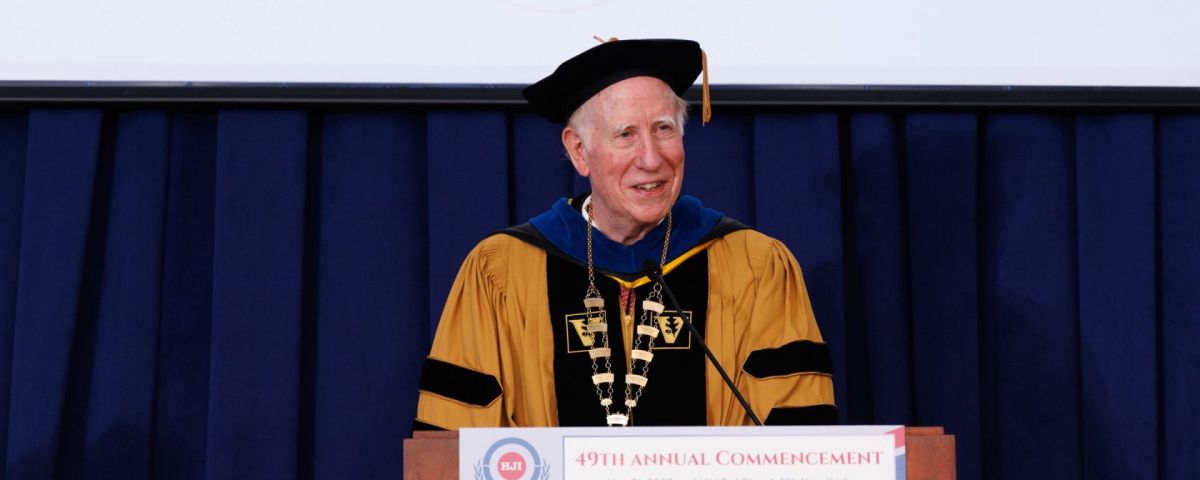
Thomas G. Walsh, Ph.D., President, HJI
Trustees, Faculty, Staff, Graduates, Family, Friends and Alumni!!!
Thank you all for being here today for the 49th commencement ceremony of HJI.
Congratulations once again to our Class of 2025 graduates, the 49th graduating class for this great institution.
The 49th Commencement Ceremony marks a milestone in the 50 year history since the founding of our institution by our True Parents in September of 1975. This was only a few years after they had first come to this country to carry out their ministry. Their decision was bold, decisive, and visionary. There was no guarantee of success. But it has paid great dividends over the years, not only for the Family Federation for World Peace and Unification, but for the wider society and world. For this reason, we are ever grateful for the foresight, guidance and support of our Founders.
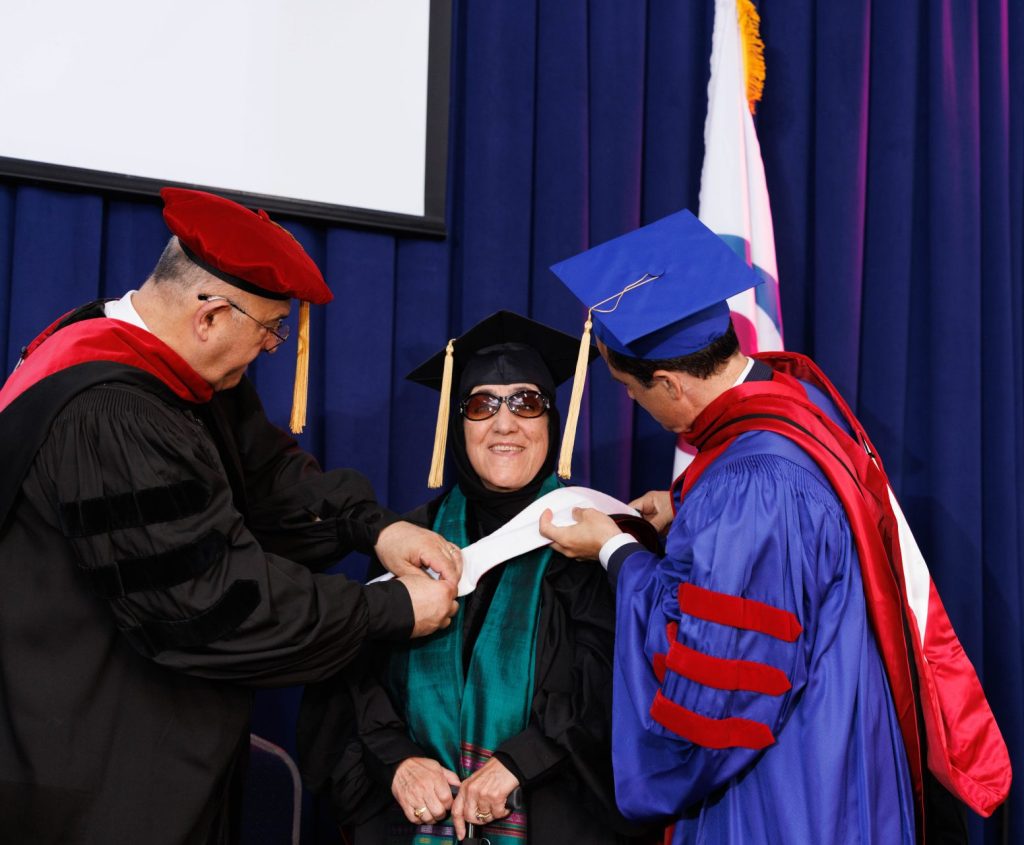


I also want to congratulate, once again, my dear friend, Dr. Sakeena Yacoobi. She has delivered a remarkable commencement address.
I have had the pleasure of knowing her since she became a Sunhak Peace Prize Laureate in 2016. As we have witnessed, she is a woman of remarkable courage and strength, driven by a moral and spiritual passion for education, and for improving the lives of women and girls, especially in her native country of Afghanistan.
Thank you for being here with us today, Dr. Yacoobi. You are always an inspiration. I know that Holy Mother Han has great love and respect for you and your important work.
I also thank our FFWPU USA President, Rev. Demian Dunkley, for being with us today. Without the generous support of FFWPU USA for over five decades, HJI could never have fulfilled its mission. Please also convey to Holy Mother Han our deepest appreciation.
All of us at HJI value our partnership with FFWPU USA, and we are committed to providing the highest quality education for our students who come from all across the world, helping them develop the skills that allow them to become transformational leaders in ministries and careers that serve the public good.
With this in mind we are especially proud of our alumni who, following their time of studies at HJI, have gone on to take leading positions of profound importance to the advancement of the vision of our Founders to build a world of universal and lasting peace; a world in which we all live together cooperatively and in harmony, as one family under God.
Our HJI mission is reflected in our name, one that highlights our commitment to peace and public leadership. Peace, as our graduates know, is understood very comprehensively or holistically. At its core, peace is an ideal that describes a set of relationships; our relationship with God, our relationship with humanity, and relationship with the natural world, our environment.
The HJ in our name refers to hyo-jeong, a Korean word indicating a virtue or way or life that respects, honors and reveres God, humanity and the environment. Within our tradition it may be understood as an essential virtue, a quality of character that is the sine qua non of peace.
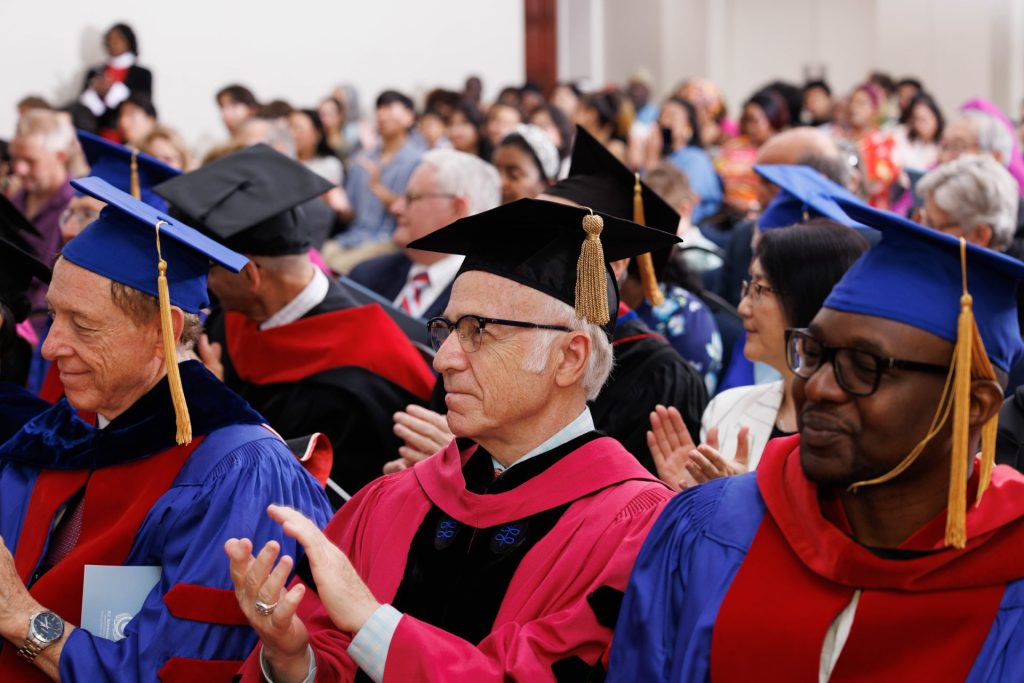
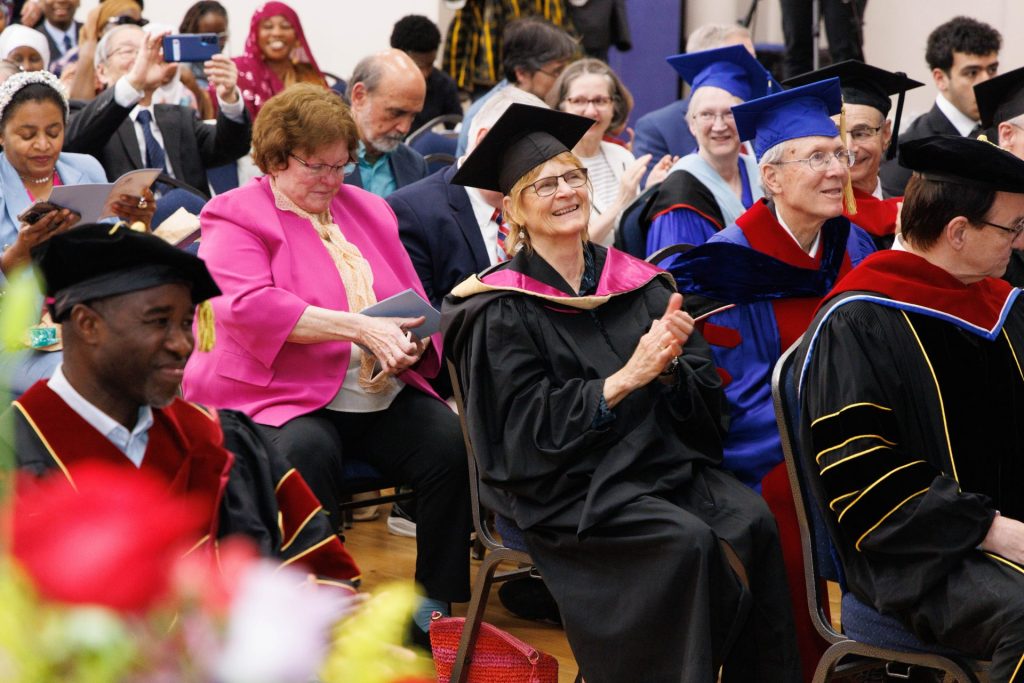
As we enter this 50th anniversary of our institution’s founding, we are looking ahead, envisioning our next 50 years, including the aspiration that one day this institution will grow to become not only a premier center of graduate education, but also a leading university, one that draws students from across the world, offering many programs and professional schools that serve the wider world, including a world class Divinity School.
While we understand that institutions of higher education are facing a variety of challenges at this time—some demographic, some political, and some economic—I believe HJI is poised to face and overcome those challenges, while also taking advantage of the opportunities that lie ahead, demonstrating foresight and resilience.
This summer, thanks to the support of FFWPU, HJI will move from its present location here at 43rd St to a fantastic new space at 481 8th Avenue, on the 12th floor of the New Yorker, just across the street from Madison Square Garden, Penn Station, the Moynihan Train Station and Hudson Yards. Our broader neighborhood includes the Empire State Building, the Statue of Liberty, Central Park, the United Nations, Lincoln Center, Columbia University, NYU, Fordham University, Union Theological Seminary, and historic religious sites such as the Cathedral of St. John the Divine (1892), Trinity Church (1698), St. Patrick’s Cathedral (1879), Riverside Church (1926), and many historical Synagogues, Mosques, and Temples.
We expect HJI to flourish in its new environs.
Soon after graduation, HJI will inaugurate its first issue of the International Journal for Peace and Public Leadership, and its first two volumes to be published by HJI Press.
In early August, HJI, together with FFWPU USA will convene an international conference addressing the root causes of threats to religious freedom.
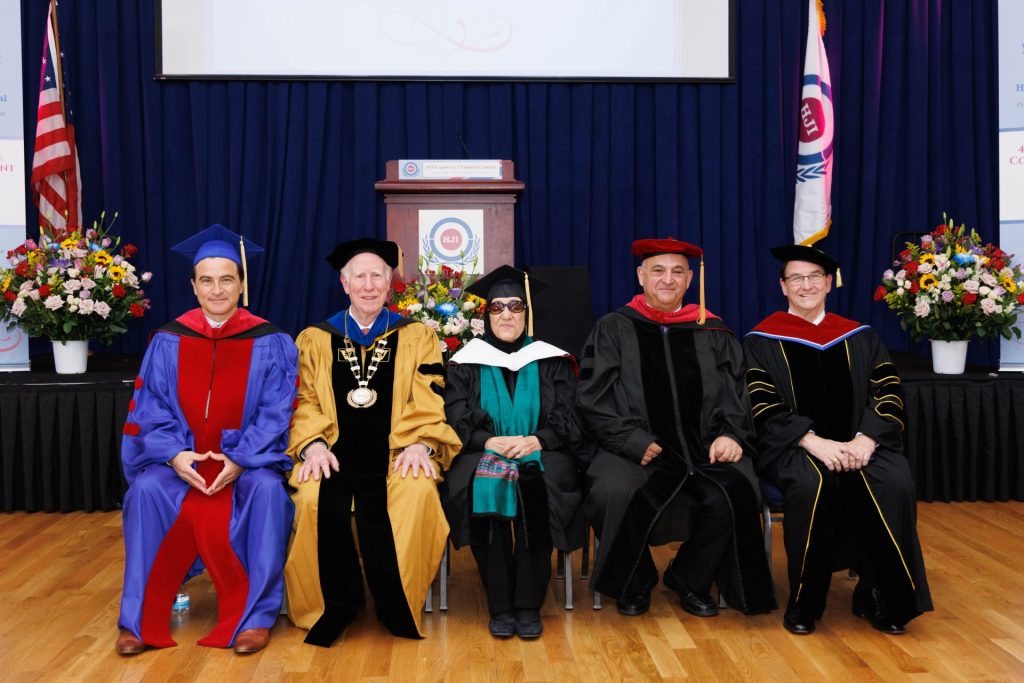
Recently the Board of Trustees approved a new Strategic Plan for HJI, one which places emphasis on increased collaboration with FFWPU, the strengthening of HJI’s wider profile, increased emphasis on partnerships, and stronger outreach to alumni.
In closing, let me say a word or two about religion and peace.
Often we hear that religion is a primary source or cause of conflict in our world. Since the time of the religious wars in Europe, ending with the Treaty of Westphalia in 1564, it has been assumed or taken for granted that religious discourse should be bracketed or distanced from nation state governance and diplomatic relations. Secularization, meanwhile, has been a popular thesis of modernity, predicting that religion would gradually wither away as human beings became smarter and more scientific, shedding holdovers from a primitive past.
Religion and faith, however, have proven to be stickier and more resilient than political or economic ideologies. Moreover, its record seems to be less violent than that of materialistic and totalitarian systems of recent centuries. Religion was often falsely scapegoated.
As our Founders understood so well, religion, spirituality and faith are absolutely essential for peace. This principle underlies so much of what we do at HJI.
Our faith-based foundations are not only at the core of HJI; such foundations are necessary if we are to move beyond the current era of great power politics, and beyond a new Cold War that appears very near to becoming a Hot War era. Likewise if we are to move beyond an era of decadent secularization and polarization, an age, regrettably, where mutual hate replaces mutual respect. Our world must rediscover its roots, drawing on the truths that have been taught throughout the ages by our religions, and found in their scriptures. That is the vision of our Founders and indeed the hope of all ages; a hope that one day we will all find the peace that the Vedas, the Torah, the Gospels, the Koran have called us to embrace.
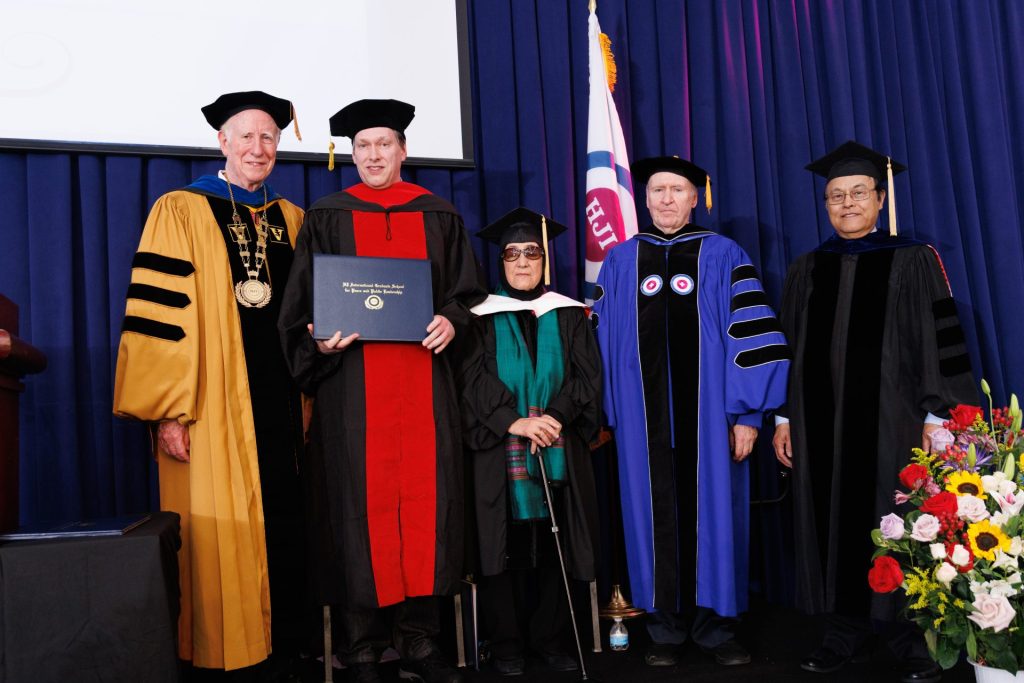
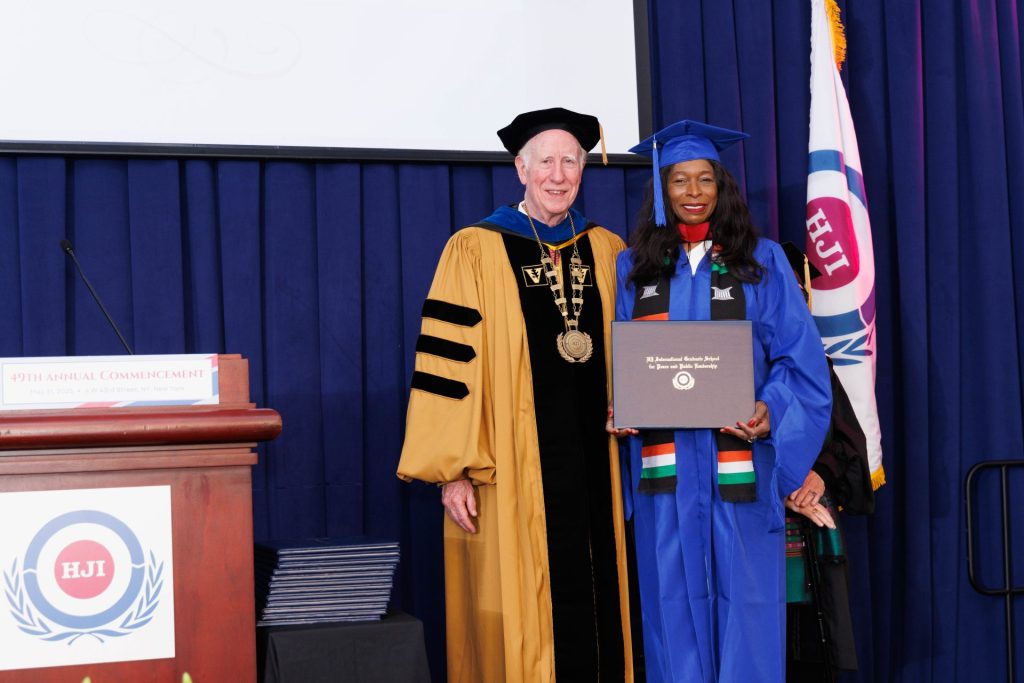
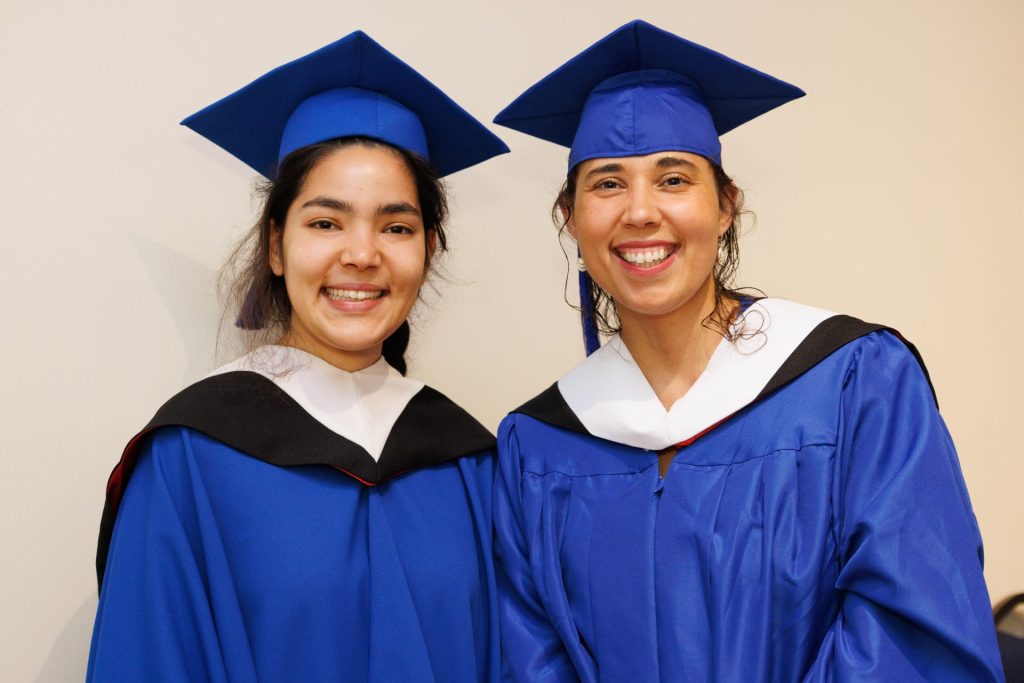
My dear graduates, the principles of peace that ground us here at HJI are essential if we are to move from our current state of discord, conflict and violence to a world of universal and lasting peace.
Graduates, please carry that vision with you as you go out to the world.
Keep the fire burning for your alma mater. Be confident that all of us here at HJI stand ready to continue to support you. Please maintain your commitment to serving the wider world, creating peace through principled public leadership.
God bless you all.





